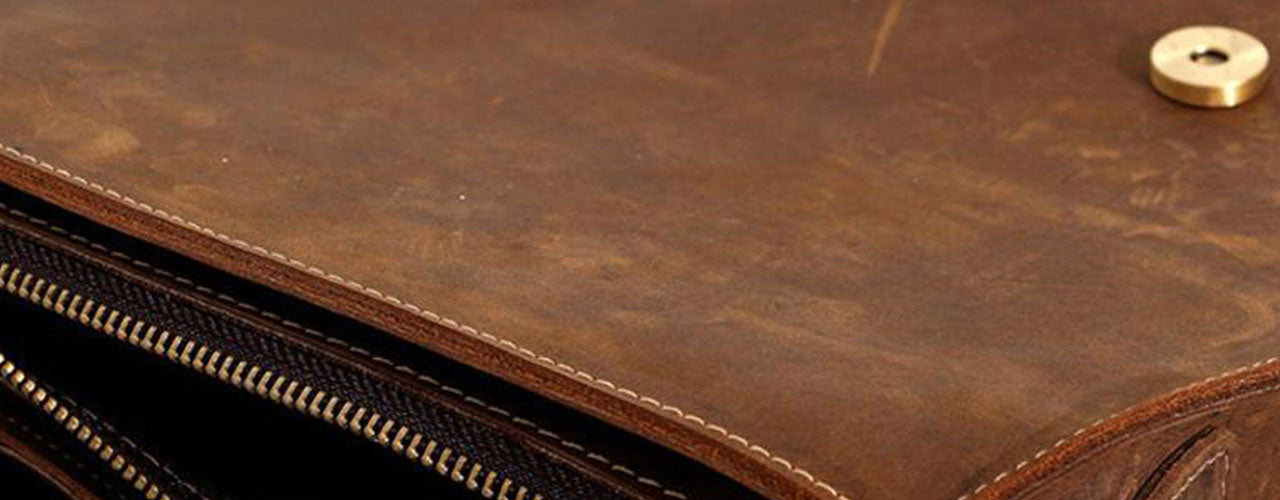Is Your Leather Jacket Waterproof?

When you invest in a leather jacket, you want to be as careful as you can in order to let it last as long as possible; sometimes forever. A good leather jacket costs a lot of money and you wouldn't want to throw it out because you didn’t know how to take care of it. Although there are various ways of taking care of your leather jacket, it is extremely essential to know whether your leather jacket is waterproof or not. There is no simple yes or no answer to that question. There are a few factors that determine how your leather jacket will react to water. But, one thing is for sure, leather isn’t waterproof, it is water resistant. So, what happens if your leather jacket gets wet?
Leather Jackets Lose Essential Oils And Develop A Dry Texture After Getting Wet

Leather is a natural material. It is made from animal hides. This means, it has properties like skin. Leather isn’t waterproof but it is water resistant. What this means is that it is naturally able to resist water penetration. However, water causes the leather to dry and lose its essential oils. And if leather dries, it becomes hard and stiff. It also loses its supple texture. If the leather isn’t drying up, it might also rot instead. But don’t worry, this doesn’t mean your leather jacket will rot if you walk in rain. It depends on the type of leather and if it's treated or not to decide what happens to it as a result of rain. It does, however, lose its essential oils and develops a dry texture.
Unwaxed And Untreated Leather Will Absorb Water

If leather isn’t treated and waxed, it is as raw as ever. Although you’ll be getting the real feel of the leather, it will also damage more easily. If the leather jacket remains untreated and unwaxed then the water will land straight onto your jacket and there won’t be a protective layer over it. This will cause the jacket to absorb the water. And if a leather jacket absorbs water, it will become soft. This isn’t necessarily a positive sign. You shouldn’t opt for an unwaxed and untreated jacket if you live in a rainy city.
Treated Leather Will Resist Water

Treated leather isn’t waterproof either but it's water resistant. When you treat leather, you add a layer of wax on it which allows the leather to be protected. Your leather jacket can protect you in a light storm but this doesn’t mean you go and stand in the rain on purpose. The more you keep your leather jacket away from water, the better.
Top Grain And Full Grain Leather Is The Most Water Resistant

Leather jackets that are said to have the best quality leather are made from top grain leather. If you’re looking to invest in a leather jacket, a top-grain leather jacket would be the right kind to buy. It will not only last you a lifetime but will also be more water resistant compared to other kinds of leather. Full-grain leather is also the highest quality of leather but since it is relatively thicker, it isn’t used to make leather jackets. Full-grain leather is also water-resistant. If you’re looking to buy a leather sofa or leather boots, then your best bet will be something made from full grain leather. In essence, both top grain and full grain leather are the most water resistant out of all the other types of leather.
Leather Jackets Can Be Protected Using Waterproofing Products
Be cautious about what leather product you buy and how you take care of it from the start. Keep it safe from water and take good care of it. However, another way of protecting your leather product is by waterproofing it. You can apply a certain type of wax to protect the leather jacket. There are various leather waterproofing products that do the job well. But be careful, make sure you test in on a small patch before you apply it all over the jacket. The most famous waterproofing products are Ducks wax and Nikwax. Test these products on a small patch on your leather jacket and then see if it is appropriate to apply to the entire jacket in order to make it more water resistant. These products don’t promise to turn your leather jacket a raincoat but they will make sure water won’t damage the jacket as much as it would’ve when left untreated.
However, the best trick in the book is to be cautious from the start and stay away from water unless the weather calls for it!


